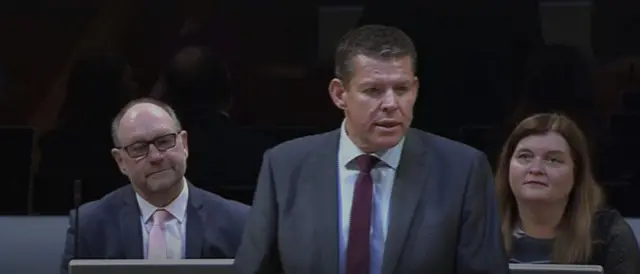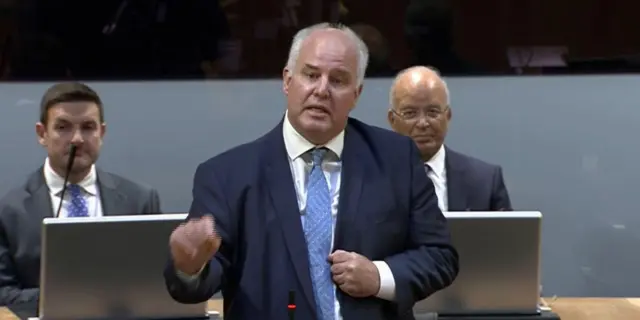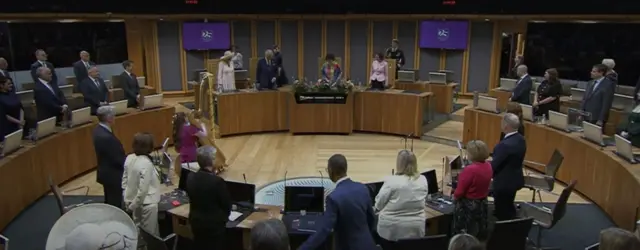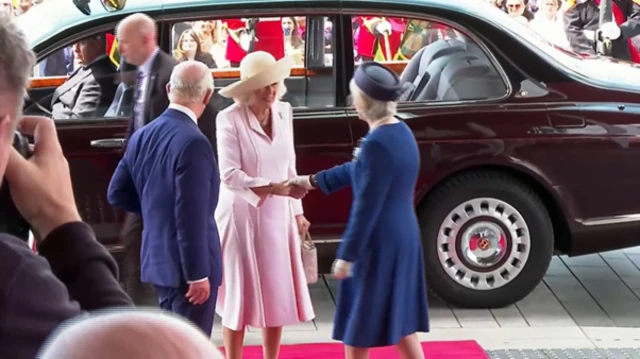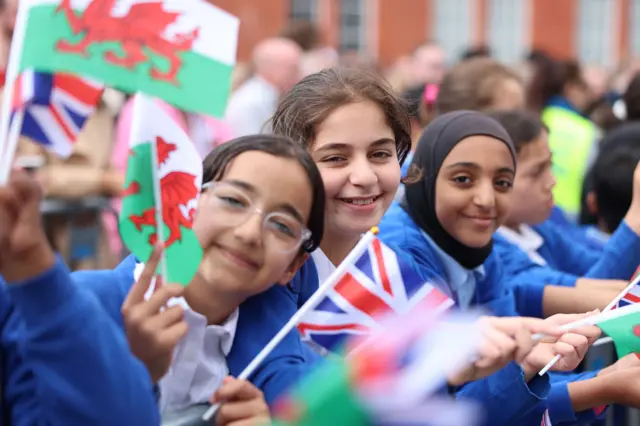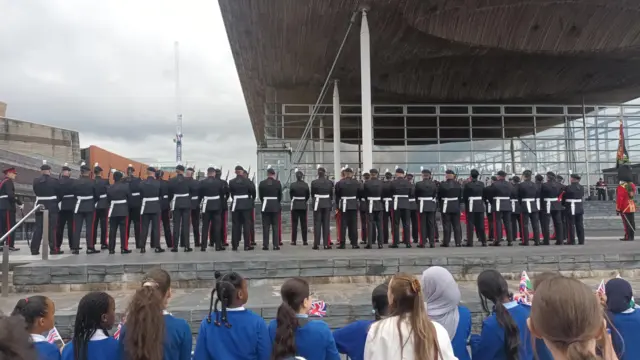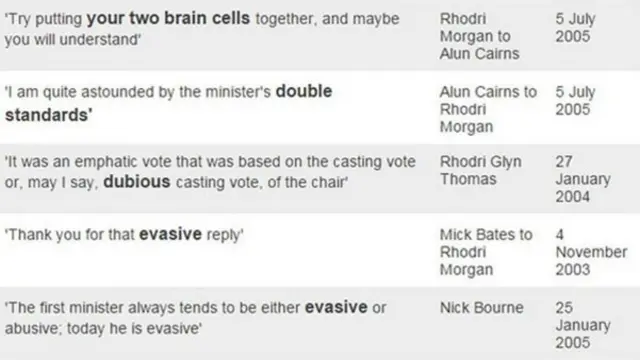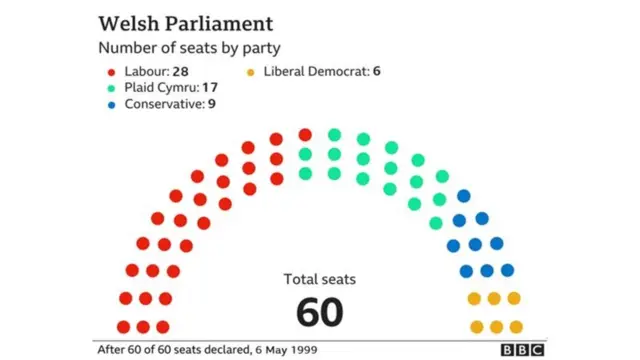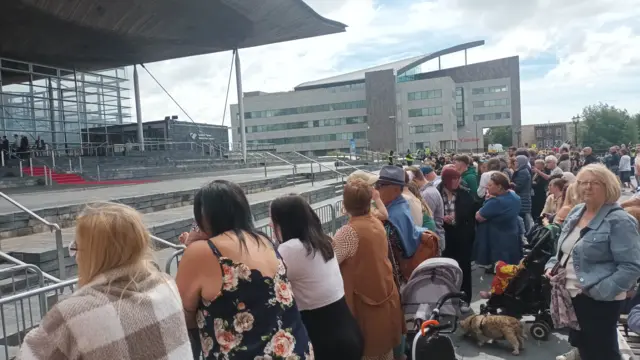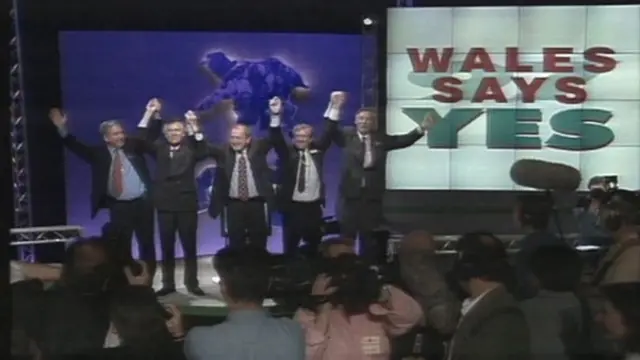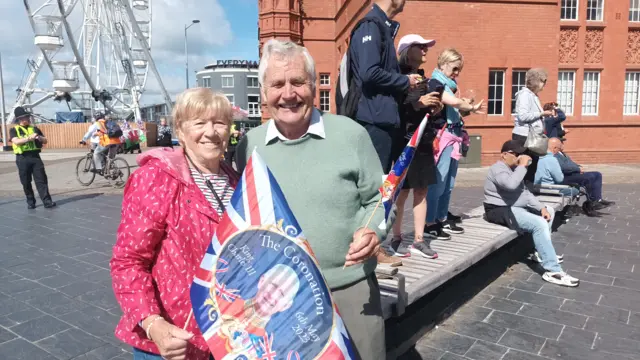King talks of pride in Wales' journeypublished at 12:21 BST 11 July 2024
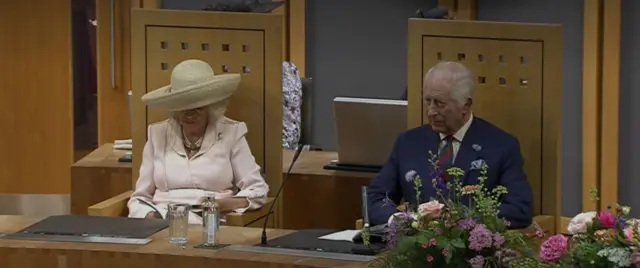
King Charles has delivered a speech using Welsh and English
"It's wonderful to see the Senedd uses the Welsh language so often not just as a symbolic use, but as its foundation," the King said in an address to the chamber.
The King used both Welsh and English as he talked about his affection for "this ancient land" and how it was a privilege to share in the occasion.
He said the Senedd's 25th anniversary was a milestone in a journey Wales had been on for all of his life.
It had given Wales " a distinct voice", delivered with "clarity and purpose", he added.
The King also talked about his son Prince William returning to Ynys Mon this week, a place "that means so much to him".
